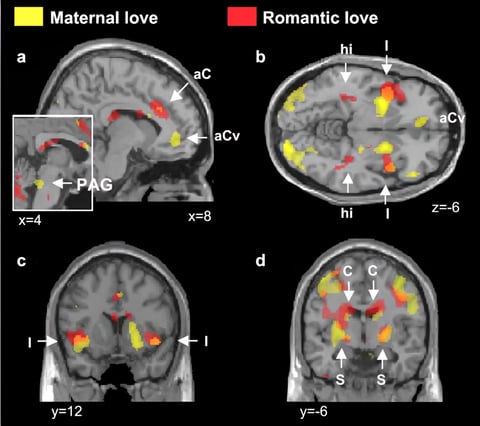Neuroscience of Love: How Oxytocin and Vasopressin Shape Human Bonding and Relationships
Oxytocin and vasopressin shape human bonding, love, and commitment. The neuroscience of love reveals how brain chemistry influences attachment, relationships, and monogamy through genetic variation
BLOGS-RATHBIOTACLAN
Love, Commitment, and Human Brain Chemistry
The vole saga is a thriller that gives insight into the impact of brain chemistry on behavior.
But what does this tiny rodent have to say about human love, commitment, and relationships?
Although it's premature to make definitive claims, encouraging evidence suggests vole studies could teach us about human emotions and bonding. Studies indicate that human oxytocin levels increase during breastfeeding in women and sexual intercourse in men and women, implying its function in enhancing bonding.
Andreas Bartels and Semir Zeki at University College London have investigated human bonding through functional magnetic resonance imaging (fMRI).
In a study of maternal love, mothers viewed pictures of their children and other familiar children while their brains were scanned. Another research compared brain activity when people looked at pictures of romantic partners as opposed to friends. It showed higher activity in regions such as the anterior cingulate cortex, caudate nucleus, and striatum when looking at loved ones. Responses to the partner and children overlapped significantly, although some areas responded differently to each relationship. The majority of these regions are associated with the brain's reward system, which confirms the significance of close emotional relationships. Notably, the same brain areas responsible for attachment in humans are dense with oxytocin and vasopressin receptors, as in voles.
These fMRI findings suggest that oxytocin and vasopressin may be significant in human attachment, as in voles. But human monogamy is more complicated than in rodents. Although human relationships are defined by many different social and psychological forces, some surprising genetic links to bonding have been found. One investigation, by Hasse Walum with 552 Swedish twin pairs in long-term relationships, determined whether genetic variation in vasopressin receptors had an influence on commitment. The genes in montane and prairie voles, coding for the vasopressin receptors, are nearly identical. Prairie voles, however, are monogamous and contain another DNA sequence close to the receptor gene that controls their social life.


Brain imaging reveals maternal and romantic love activation patterns. Brain regions are highlighted in (a) sagittal, (b) horizontal, and (c, d) two coronal views. Yellow areas indicate increased activity when mothers viewed images of their own child compared to other familiar children. Red areas showed greater activation in response to romantic partners than to friends. Key highlighted regions include the periaqueductal gray (PAG), anterior cingulate cortex (aC), hippocampus (hi), insula (I), caudate nucleus (C), and striatum (S). (Source: Bartels and Zeki, 2004.)
ADVERTISEMENTS
ADVERTISEMENTS
ADVERTISEMENTS
ADVERTISEMENTS
In the study of human twins, researchers considered whether the identical genetic variations affected monogamy. Among women, there was no clear link between relationship quality and vasopressin genes. However, among men, a curious pattern. They, who had a certain gene variant, were scoring lower on tests of marital quality and were twice as likely to have indicated relationship crises over the previous year. The wives of these men also were less satisfied in their relationships. Even though no one can say exactly how this variant of the gene works, these findings suggest that vasopressin receptors can influence bonding even in human beings.
ADVERTISEMENTS
ADVERTISEMENTS

Drop Us a Line
We’d Love to Hear from You
